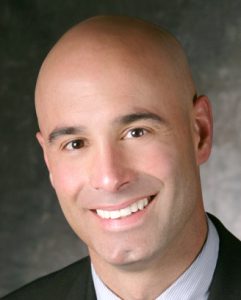Difference, Indifference, and the Health Advocate Role: Narrative is the Medicine

Adam Hoverman, DO, MPH, DTMH
Family Medicine & Public Health Physician
Clinical Instructor, Department of Health Systems & Population Health
University of Washington School of Public Health
Date: Tuesday, October 11, 2022
Time: 12:00pm to 1:30pm
Hybrid: Life Sciences Centre 1312 CMR & Zoom*
Zoom Details: For connection details, please email ches.communications@ubc.ca.
Abstract
In 2013, the Institute of Medicine report “Shorter Lives Poorer Health“ by Stephen Woolf and others highlighted two unique calls to action in the face of the United States’ relative decline in life expectancy: 1) inform the public 2) learn from other countries. The COVID-19 pandemic’s broad geographic increase in mortality rates and life expectancy decline makes clear Woolf’s directives are always applicable. To this end, a long overdue transformation of medical education is needed to better prepare a health workforce adequate for responding and adapting prior to the next pandemic. Hindering this transformation are long-standing disagreements on the health advocate role and the inclusion of health humanities in medical education.
One prescient example of cross-country learning to mend such disagreements comes from the historical and structural lessons and differences layered within the Canadian pandemic experience. The 49th parallel, known by many as the Medicine Line, allows for meaningful cross-country comparison. Although life expectancy dropped, and mortality increased, broadly in 2020-2021, Canada did less poorly than the US. Such differences existed over decades prior, though garnered little interest from medical educators. In this way, the Medicine Line can be shown to represent a long standing health divide whereby maps can become interventional tools for observing patterns, forming hypotheses, and telling narratives that reflect social, political, and economic insights necessary for improvement.
In this What I’m Thinking About series, Alfred Korzybski’s wisdom, “a map is not the actual territory” will form the basis for our discussion. We’ll muse together on: What are the limits to science when forming the life-saving narratives of our time? And, when is data alone insufficient for the health advocate to intervene? Our conversation will be aimed at the collective transition needed for the health advocate role to be more fully and broadly developed in advance of the next pandemic. Meaningful inclusion of the health humanities in medical education will be argued as a fundamental necessity to both humanize and localize cross-national learning and improvement, as the narrative becomes the medicine and the ever applicable process for improving population health we need.
Biography
Dr. Adam Hoverman is a Family Medicine Physician at Wellington Medical Clinic in Nanaimo, BC, Clinical Instructor in the Department of Health Systems and Population Health, at the University of Washington’s School of Public Health, and Board Member/Facilitator Trainer with the Northwest Narrative Medicine Collaborative. Adam completed his Family Medicine Residency at the University of Minnesota, and Preventive Medicine Residency and Masters in Public Health in Health Management and Policy from the OHSU-PSU School of Public Health.
Founded on a interest in population health and a Diploma of Tropical Medicine and Hygiene from the London School of Hygiene and Tropical Medicine, his research has encompassed health worker capacitation, community participation for maternal and child health in Ecuador and Peru, and the role of shared medical appointments for achieving the quadruple aim. Following in the footsteps of Clyde Hertzman’s biological embedding and social causation of disease and ill-health, Adam’s more recent efforts focus on the co-design, co-creation, and co-production of health and social care for population health improvement.

The Division of Continuing Professional Development, University of British Columbia Faculty of Medicine (UBC CPD) is fully accredited by the Continuing Medical Education Accreditation Committee (CACME) to provide CPD credits for physicians. This one-credit-per-hour Group Learning program meets the certification criteria of the College of Family Physicians of Canada and has been certified by UBC CPD for up to 15.0 Mainpro+® credits. Each physician should claim only those credits accrued through participation in the activity. CFPC Session ID: 197919-001.
RCPSC ACCREDITATION: The CHES Cutting Edge Speaker Series is a self-approved group learning activity (Section 1) as defined by the Maintenance of Certification Program of the Royal College of Physicians and Surgeons of Canada.